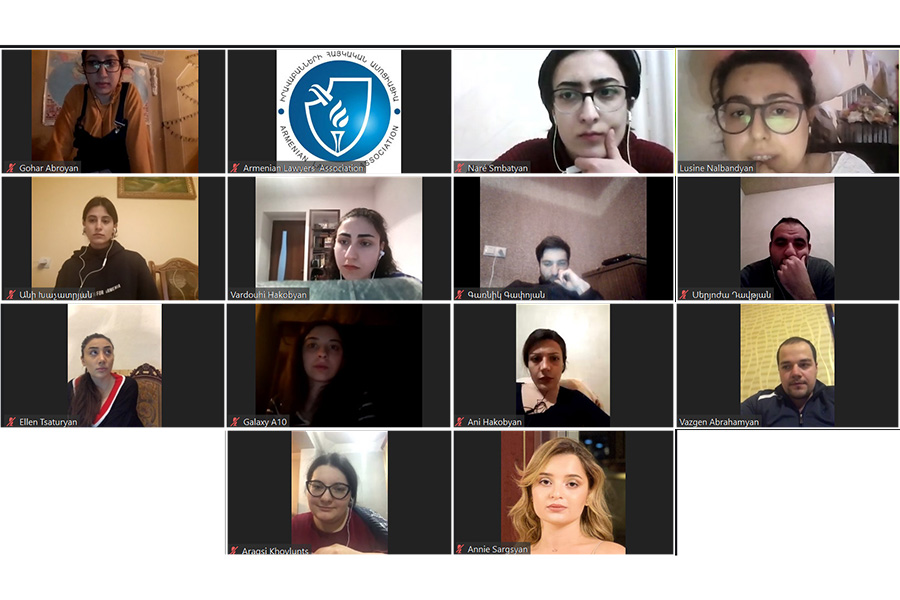Criminal Liability of Legal Entities and Anti-Corruption Compliance Program (ACCP): The Regular Distance Learning Course of the Anti-Corruption School for Young Leaders took place

On 7 April, 2020, the regular lecture of the distance learning course of the 5th stream of the Anti-Corruption School for Young Leaders took place. The topic of the training was Legal Responsibility of Legal Entities and the Anti-Corruption Compliance Program (ACCP), the lecturer was Ms Lusine Nalbandyan, a lawyer-expert at the Armenian Lawyers’ Association.
The lecturer presented Armenia’s international commitments, within the framework of which Armenia is required to provide for the institute of legal responsibility of a legal entity. Emphasize was made on the necessity of introducing ACCP in Armenia. She presented facts about the corruption risks in the business sphere in Armenia, in particular the high risk of corruption in the investing countries in Armenia. She also touched upon the individual and global benefits of economic entities, in case they implement the ACCP with all its components. According to her, the private sector needs the introduction of the ACCP. It will help the company avoid criminal liability, reduce business costs, attract new investments, enhance the business reputation of the company, improve the business environment in Armenia and prevent the emerging of corruption risks, which will gradually reduce corruption in the business sector.
An important principle of the ACCP is the involvement of the company head in the process, accountability, transparency of the process, efficiency, and control and engagement of employees. The expert noted in her speech that it is important that the management shall show commitment during the implementation of ACCP, including corporate governance, ethics, and business turnover. Management should be committed to involve employees in the process by being an example for them. The lecturer also mentioned that the ACCP is not a solidified system and needs constant improvement and monitoring. She stressed that the ACCP should be introduced not only in the private sector, but also within the framework of public servants.
The lecturer attached importance the risks assessment and said that weaknesses should be found, to determine the degree of probability of corruption, and to give special guidance on the possibilities of the origin of corruption. It is necessary to implement a risk management plan, evaluate and periodically review it.
At the end of the lecture, the students agreed with the lecturer that corruption is considered an unnecessary expense for the business, and then received their regular assignment for the next lecture.
